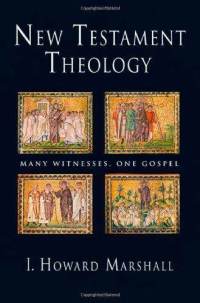 Apostle Paul by Valentin de Boulogne Don Howell's "Pauline Thought in the History of Interpretation" in terms of Dogmas, Doctrines, Distinctives, and Details.* Dogmas. Howell presents the views of several influential scholars over the past century. Unfortunately, many scholarly interpretations of Paul since the Enlightenment era echo the allegorical hermeneutic of old, subjecting sacred works to a philosophy other than the one presented by the literary meaning of the text. Most of them deny the historicity of biblical accounts and the biblical works themselves, therefore denying the apostolic faith taught in Scripture and by the Church throughout history. The first is Baur, who argued that apostolic Christianity was marked by a radical cleavage between the church of Jerusalem and the churches of the Pauline mission by relegating all biblical books that do not reflect this cleavage to the second century (aka, non-canonical). Orthodoxy is thus a result of the Catholic Church ironing out the kinks. Bousset similarly denies the historicity of the bible, claiming that Paul was influenced by the Gnostics instead of it being the other way around (310). Hunter goes so far as to say that Paul “borrowed his gospel from the people among whom he worked” (310). Howell accurately accounts for these syncretistic claims as not accounting for the whole of Pauline thought (Galatians 1:6-11) and as one missionary analyzing another better explains parallels as contextualization since “linguistic analogy does not necessarily mean conceptual identity” (311).
0 Comments
 I. Howard Marshall's chapter of Luke in terms of Dogmas, Doctrines, Distinctives, and Details.* Dogmas. Marshall affirms all dogmas key to being “Christian.” The gospel of Christ is central, with repentance and lifelong discipleship to the Trinity as revealed in scripture. He shows that Jesus gave two options: to be or not to be His disciple, the former is costly, but far worse to give up and be the latter (136) and the greatest sin is failure to recognize and respond to God's message (142). While the historical assessment of Luke is postponed (130, 132), the idea that it is “historical fiction” is denounced and Bultmann's existential view is denigrated, positing that the Synoptic Gospels only have force if they are “salvation history” (141, ftnote). However, scripture could be lauded more. The Mission of God is rightly seen as the integrating motif. Marshall bluntly states that Jesus' “mission is summed up as that of the shepherd who goes out to look for and to rescue those who are lost” (138). Marshall even rightly prioritizes eschatological dualism (a Distinctive), questioning Hans Conzelmann's view that the realization of delay led to the church's later motivation to be effective witnesses of the church, instead seeing the early Christians theology as “salvation-historical” right from the start (145). Thus, from the songs of Mary and Zechariah “concerned with God's action for the sake of his people” and “salvation in terms of forgiveness and light” (131) to the passing of the baton at the Great Commission (140), “the character of the career of Jesus is best summed up as mission.” (149). Unfortunately, he seems to allude that this mission was recognized only after the transfiguration (134). Christologically, Jesus is seen as prophet, messiah, and king, with emphasis on prophet (146). Sadly the significance of the “Son of Man” title seems to be downplayed (147), but Marshall sums up Christ's many types and roles as being fulfilled simultaneously in an unimagined reshaping well (149). |
AuthorBrett Yardley: Categories
All
Archives
January 2019
|

